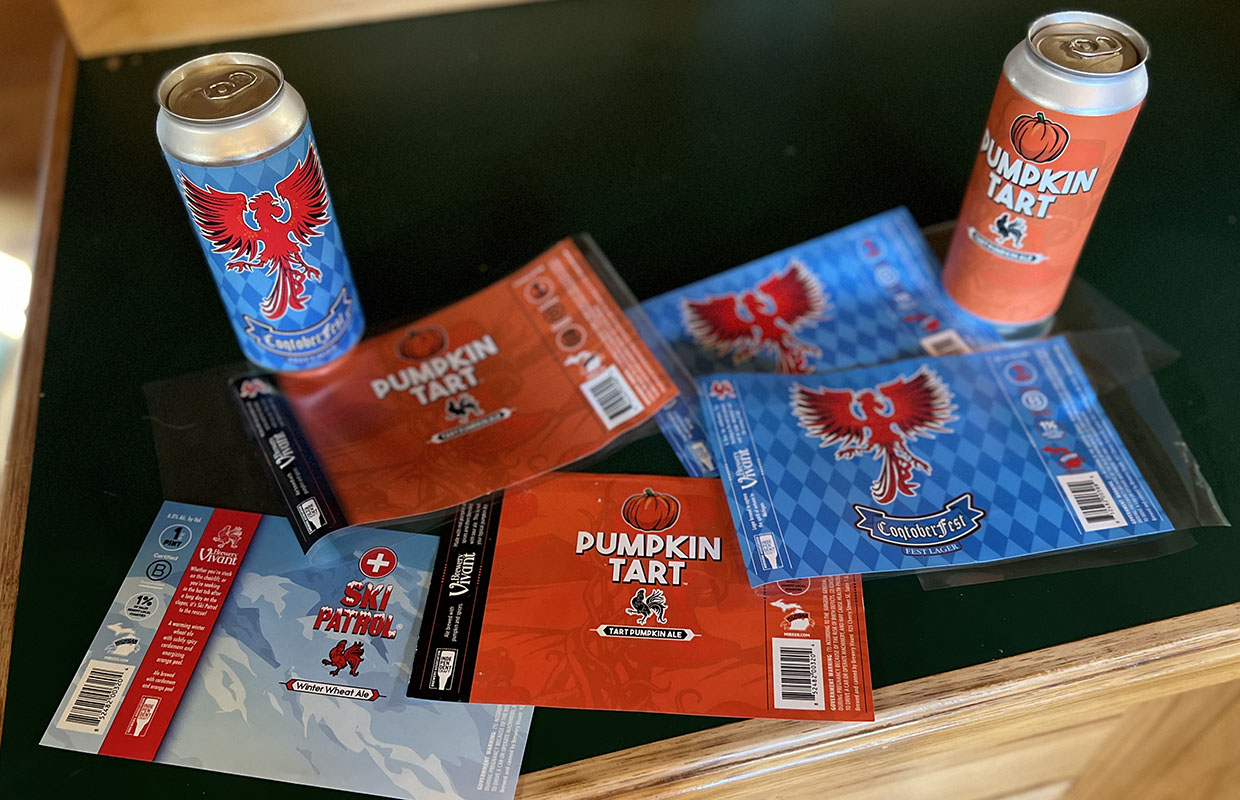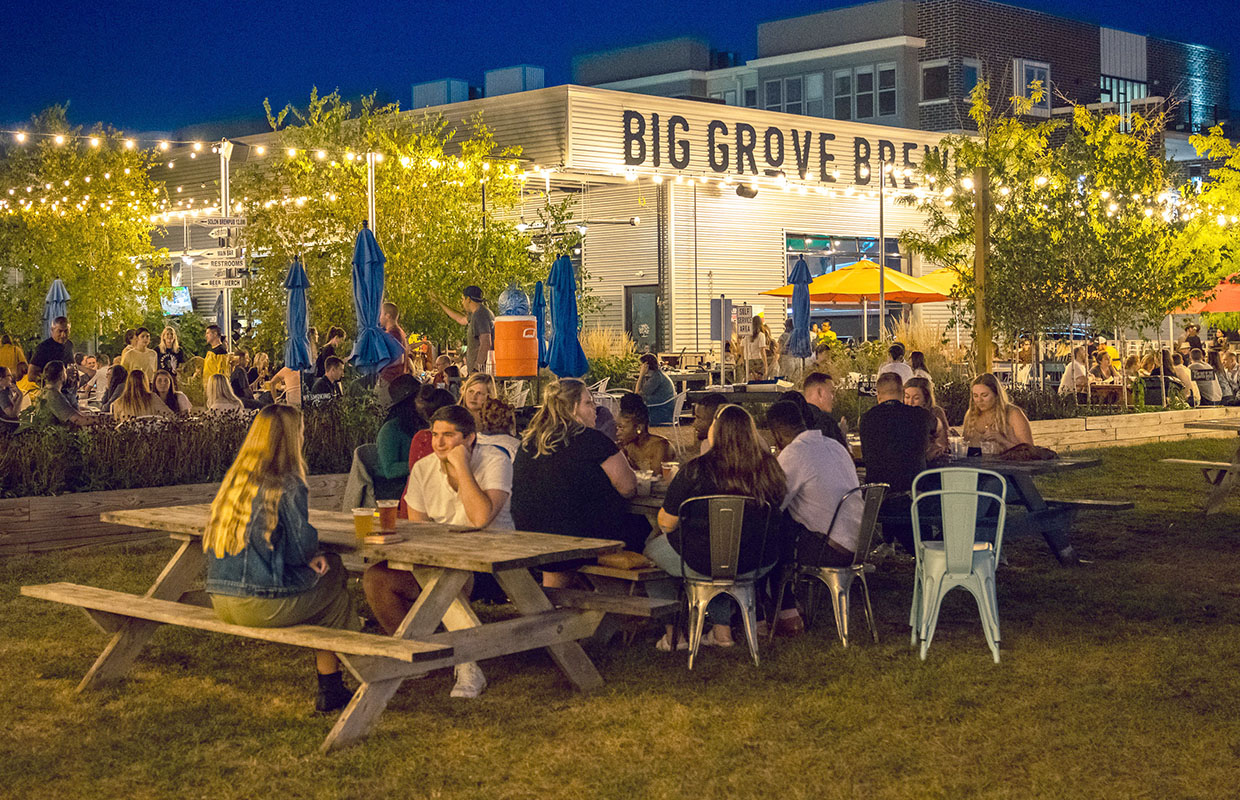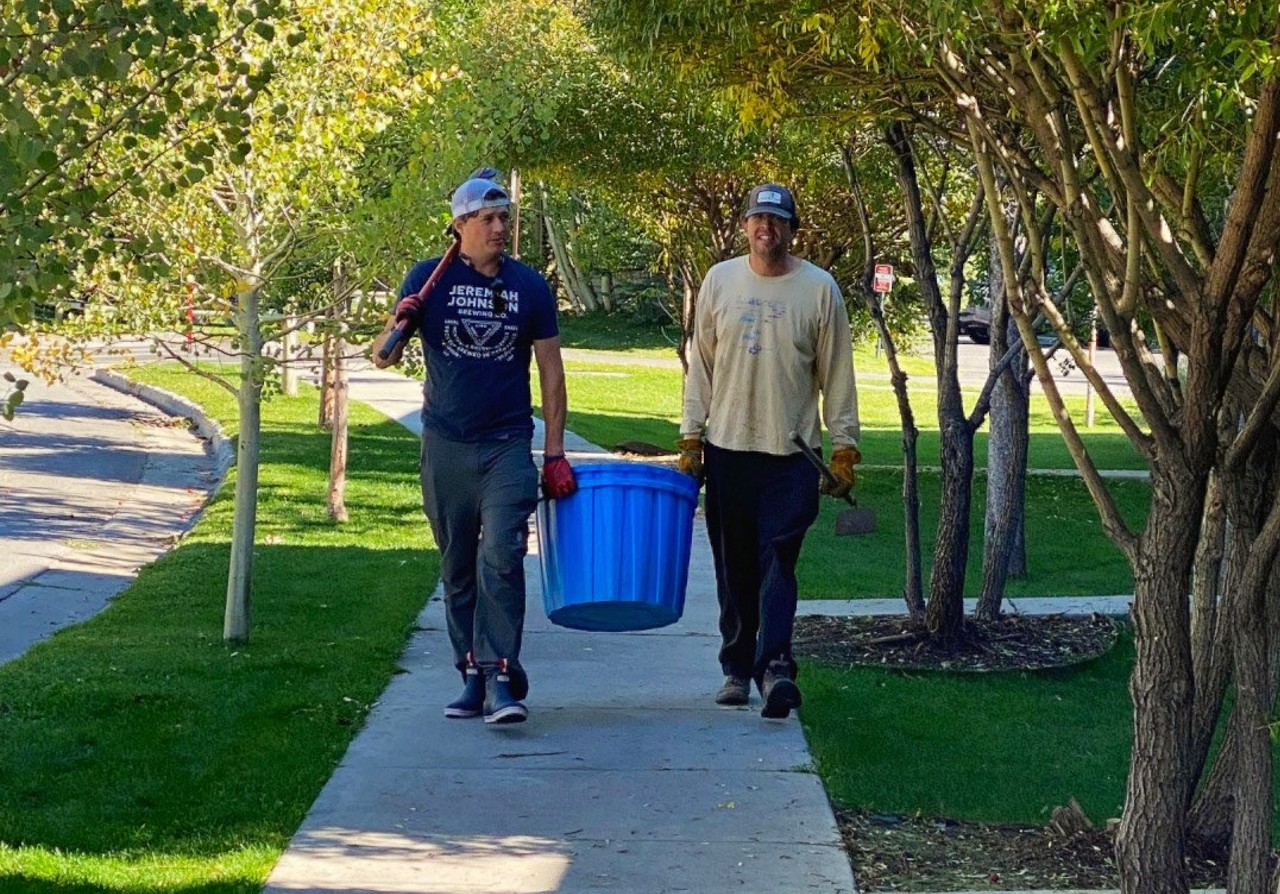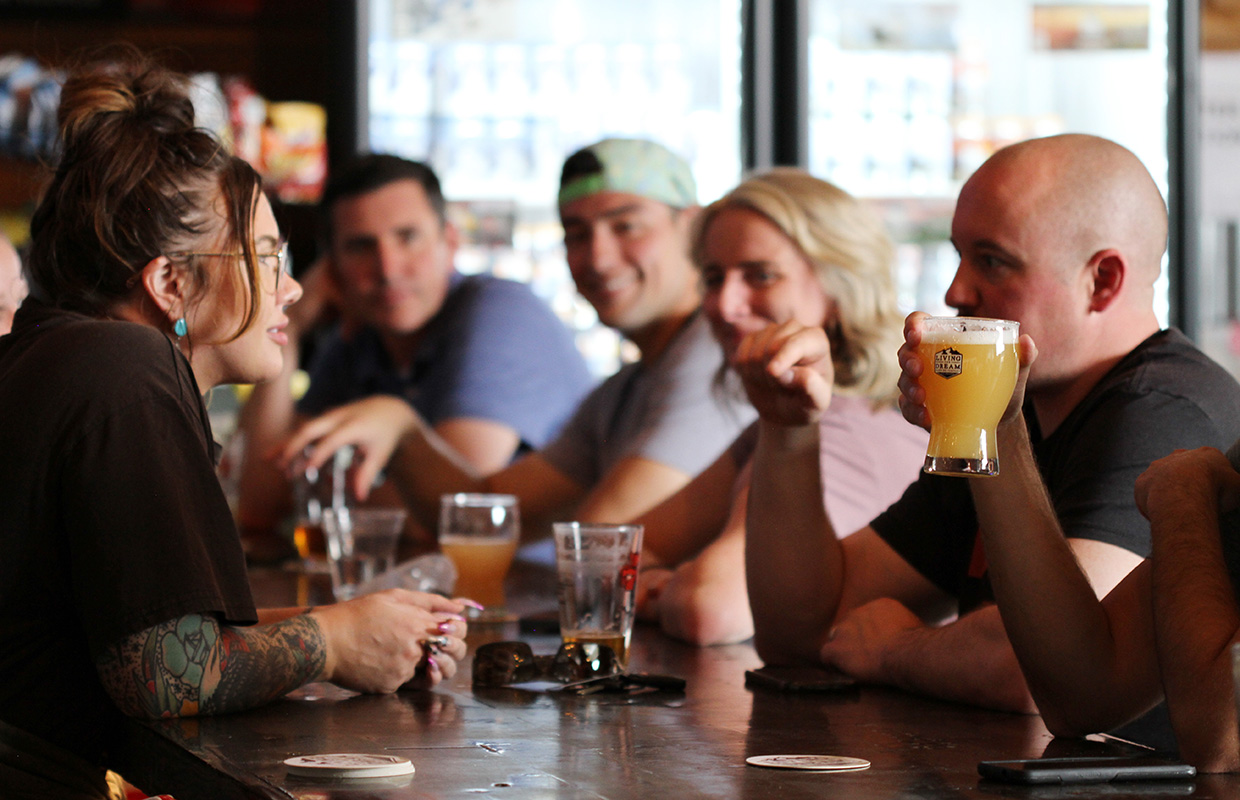
When Jason Spaulding is told it can’t be done, his entrepreneurial side kicks in.
“When someone tells me I can’t do something, it makes me want to do it more,” he told Brewer.
The idea that the founder of Michigan’s Brewery Vivant and Broad Leaf Brewery & Spirits has come to is finding a way to rid the aluminum recycling stream of plastic labels and shrink-wrap material from brite cans. The company was the first-ever LEED Certified brewery in the country, so pushing the sustainability envelope is always on Spaulding, and his wife Kris’s, mind.
Finding a cheaper and more sustainable alternative to pressure-sensitive labels and shrink wrap, Brewery Vivant is experimenting with paper labels on cans.
“Part of it is a cost-savings thing, but also, a paper label with a water-based glue is not a problem at all in the recycle stream,” Spaulding said. “There’s a lot of barriers, people telling ya you can’t do it. I think we’re kind of onto something but we’re in that stage of figuring it out and how to make it work.
“What’s the right paper? What’s the right glue? Do we have the right machine, what’s the glue pattern? Too much glue, not enough glue? There’s going to be a bunch of trial and error.”
Brewery Vivant was the second craft brewery in Michigan to use cans and now finding a way to label those cans with paper is the next step.
“I think we’re kind of on the forefront of that too,” Spaulding said. “At some point, I think it’s gonna hit the fan and all breweries are going to have to address this point.”
Brewery Vivant has had to “recreate the wheel” a bit, Spaulding said because in talking to labeling companies, they’re saying it can’t be done and they can’t help Spaulding on creating equipment.
“I remember seeing machines like this in wineries and stuff, but no one makes these anymore, no one wants to do it,” he said, showing off a new glue label machine the brewery brought in from China for R&D purposes. The brewery showed off two experiments to Brewer while there, with a run of Coqtoberfest Marzen & Pumpkin Tart.
“Those cans were canned, dry. We have one batch that we canned wet, like, in real-time. What happened is we got paper that looked great when we did it. Then after it dries, the paper wrinkled, so it doesn’t pass QC to put out in the market,” he explained. “It looks fine. But it looks a little janky for putting it out in the market. So, is it the glue? Is it the paper? Is it a little bit of both? So we’re playing around with the thickness of the paper. We’re sorting through it. We’re in that trial phase right now. So at some point, sometime in 2023, the plan is to roll all products into paper labels, and we’re not printing cans anymore.”
It’s a huge expense for any small brewery to inventory printed cans. Spaulding says that they have enough cans to run for three years and that was just one truckload.
“I’d like to retire one of those brands already, or change the marketing,” he said. “But I’ve got three more years of inventory to go through. So it’s kind of interesting. It’s a crazy time.”
Ski Patrol — a Wheat Ale — is a big seasonal brand for the company and Spaulding is hopeful on paper labels but had to order pressure-sensitive labels as a backup.
“We’re trying to figure out which, depending on how this trial goes,” he said. “If it goes well, we’re just gonna roll with it. But if we could go paper over pressure sensitive, it saves us $5,000, just this one seasonal beer and label cost. That’s boom, bottom line. That’s $3 a case.
“But at the same time, because I’m trialing it, I’m buying two sets of labels. So I’m actually going to lose in this R&D stage because I’m going to buy a full season of each label not knowing which I’m going to use.”
The glue technology employed by Carlsberg in 2018 won awards (called ‘Snap Packs’), and is a dream to be able to use, said Trent Fargher, COO of Shades Brewing.
“My dream would be to be able to use no packaging,” he said. “There’s nothing to throw away and glue is basically free.
“The equipment is off the charts to purchase that applies such technology. Other than that I haven’t seen much of anything better than a Paktech application. There is a reason everyone uses it.”
The South Salt Lake, Utah brewery admits ROIs on improving sustainability is tough for small and mid-sized breweries.
“We are always looking at ways we can conserve, however without large investments there is only so much a 4,000-barrels-a-year production brewery can do,” he said.
The ROI is much higher with bulk aluminum than with glass though, said Wolf’s Ridge Director of Operations, Bob Szuter. Switching from blank/sleeved brite cans to printed cans has saved the Columbus, Ohio brewery upwards of $5 per case on a couple of its biggest brands, in terms of production.
“Sustainability and cost savings are at the forefront of consideration in every decision made in the brewery here at Wolf’s Ridge,” he said. “We are always looking for ways to contribute to making our community a stronger player in this discussion wherever we can.”
Speaking that story to the public is important as well. In the past, Wolf’s Ridge has posted mentions on social media about energy audits they’ve done at its facilities, along with showing composting efforts the kitchen has experimented with over the years.
“Our efforts to grow Wolf’s Ridge’s sustainability program and reduce our footprint for the better will continue to be a focal point and is indeed a part of who we are as both a company and culture,” Szuter said.
Spaulding said that if Brewery Vivant does these paper labels properly, the general public won’t even notice.
“The only feedback I expect to get would be maybe some complaints that the labels fell off when it was in a cooler too long,” he said. “It’ll happen, just like a bottle does. So it’ll be fine. But if we do it properly, it won’t be a public thing. It’s more of an internal thing. Then, we can share that with our industry. Maybe we can help turn the corner.
“That’s the thing of sustainability, we never view it as a proprietary thing that we want to keep as a secret. It’s always like, what can we share? How can we make the world a better place? It’s not a competitive edge. It’s just how can we figure out a way to do it better? You want to impact the world.”






Be the first to comment